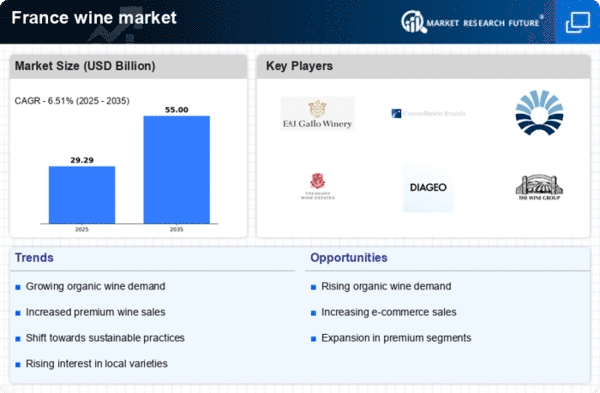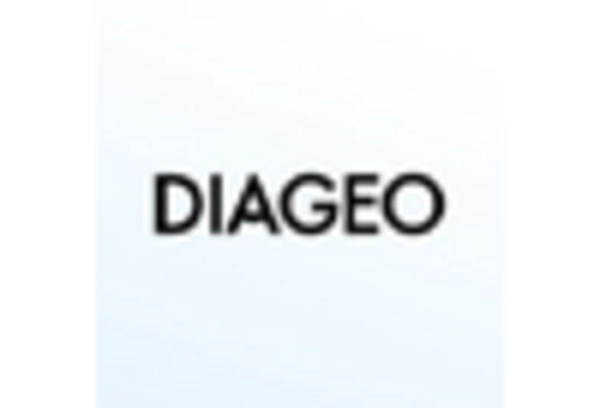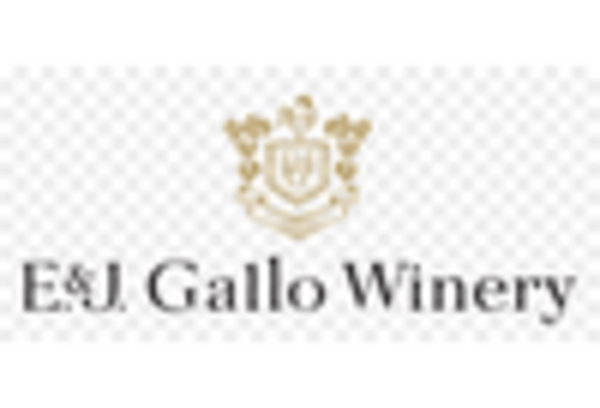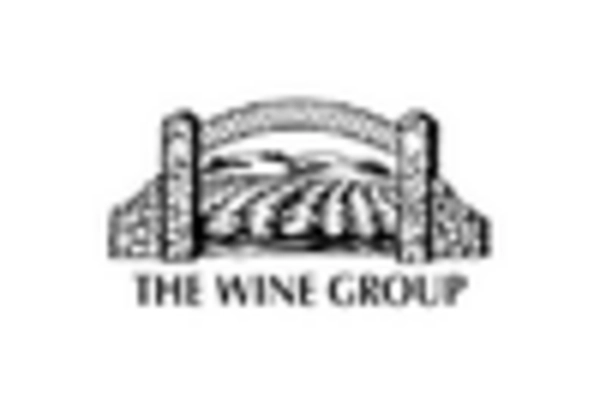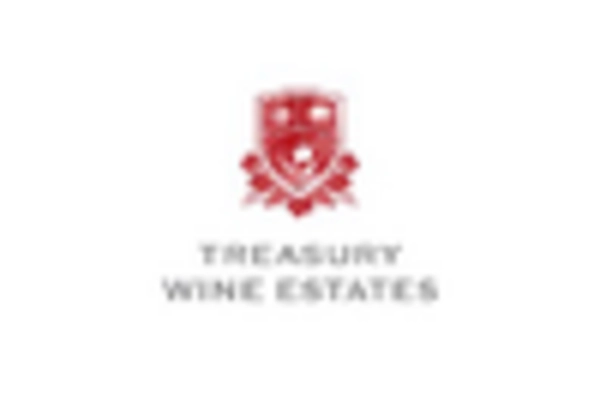Sustainability Initiatives
The wine market in France is increasingly influenced by sustainability initiatives. Consumers are becoming more environmentally conscious, leading to a rise in demand for wines produced using sustainable practices. This shift is reflected in the growing number of vineyards adopting organic and biodynamic farming methods. In 2023, approximately 15% of French vineyards were certified organic, indicating a significant trend towards eco-friendly production. The wine market is responding to this demand by promoting wines that emphasize their sustainable credentials, which may enhance brand loyalty and attract a broader customer base. As consumers prioritize sustainability, the industry could see a shift in purchasing behavior, with a potential increase in sales of sustainably produced wines.
Tourism and Wine Experiences
Tourism plays a crucial role in the wine market in France, particularly in regions renowned for their vineyards. Wine tourism, which includes vineyard tours, tastings, and wine festivals, attracts millions of visitors annually. In 2023, wine tourism contributed approximately €7 billion to the French economy, highlighting its importance. The wine market benefits from this influx of tourists, as they often purchase wines directly from producers, thereby increasing sales. Additionally, the experiential aspect of wine tourism enhances consumer engagement and fosters a deeper appreciation for wine, potentially leading to increased consumption. As tourism continues to thrive, the wine market is likely to capitalize on this trend by offering unique experiences that cater to both domestic and international visitors.
Changing Consumer Preferences
The wine market in France is experiencing a shift in consumer preferences, particularly among younger demographics. Millennials and Generation Z are increasingly seeking unique and diverse wine options, moving away from traditional choices. This trend is reflected in the rising popularity of natural wines and innovative blends. In 2023, sales of natural wines in France increased by 20%, indicating a growing acceptance of unconventional wine styles. The wine market must adapt to these changing preferences by diversifying product offerings and marketing strategies. Engaging younger consumers through social media and experiential marketing could be crucial for capturing this emerging market segment. As preferences continue to evolve, the industry may need to remain agile to meet the demands of a dynamic consumer base.
Regulatory Changes and Trade Policies
Regulatory changes and trade policies significantly impact the wine market in France. The industry is subject to various regulations concerning production standards, labeling, and export requirements. Recent changes in trade agreements may affect the competitiveness of French wines in international markets. For instance, tariffs imposed on wine exports could potentially hinder growth opportunities for French producers. In 2023, approximately 25% of French wine exports faced increased tariffs, which may influence pricing strategies and market access. The wine market must navigate these regulatory landscapes to maintain its position in the global market. Adapting to changes in regulations and trade policies will be essential for sustaining growth and ensuring the continued success of French wines.
Technological Advancements in Production
Technological advancements are reshaping the wine market in France, enhancing production efficiency and quality. Innovations such as precision viticulture, which utilizes data analytics and satellite imagery, allow winemakers to optimize vineyard management. This technology can lead to improved grape quality and yield, which is essential in a competitive market. In 2023, approximately 30% of French wineries reported using advanced technology in their production processes. The wine market is likely to continue embracing these innovations, as they not only improve operational efficiency but also appeal to tech-savvy consumers who value quality and consistency. As technology evolves, it may further transform the landscape of wine production in France.


